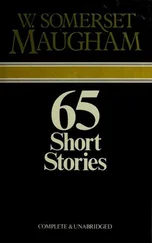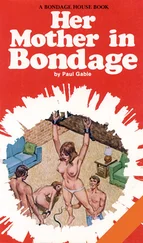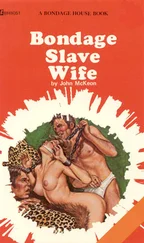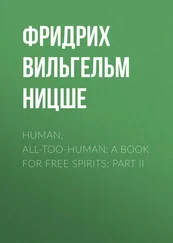Somerset Maugham - Of Human Bondage
Здесь есть возможность читать онлайн «Somerset Maugham - Of Human Bondage» весь текст электронной книги совершенно бесплатно (целиком полную версию без сокращений). В некоторых случаях можно слушать аудио, скачать через торрент в формате fb2 и присутствует краткое содержание. Жанр: Классическая проза, на английском языке. Описание произведения, (предисловие) а так же отзывы посетителей доступны на портале библиотеки ЛибКат.
- Название:Of Human Bondage
- Автор:
- Жанр:
- Год:неизвестен
- ISBN:нет данных
- Рейтинг книги:5 / 5. Голосов: 1
-
Избранное:Добавить в избранное
- Отзывы:
-
Ваша оценка:
- 100
- 1
- 2
- 3
- 4
- 5
Of Human Bondage: краткое содержание, описание и аннотация
Предлагаем к чтению аннотацию, описание, краткое содержание или предисловие (зависит от того, что написал сам автор книги «Of Human Bondage»). Если вы не нашли необходимую информацию о книге — напишите в комментариях, мы постараемся отыскать её.
Of Human Bondage — читать онлайн бесплатно полную книгу (весь текст) целиком
Ниже представлен текст книги, разбитый по страницам. Система сохранения места последней прочитанной страницы, позволяет с удобством читать онлайн бесплатно книгу «Of Human Bondage», без необходимости каждый раз заново искать на чём Вы остановились. Поставьте закладку, и сможете в любой момент перейти на страницу, на которой закончили чтение.
Интервал:
Закладка:
Mr. Perkins had spoken to him of the beauty of a life dedicated to the service of God. Philip knew what sort of lives the clergy led in the corner of East Anglia which was his home. There was the Vicar of Whitestone, a parish a little way from Blackstable: he was a bachelor and to give himself something to do had lately taken up farming: the local paper constantly reported the cases he had in the county court against this one and that, labourers he would not pay their wages to or tradesmen whom he accused of cheating him; scandal said he starved his cows, and there was much talk about some general action which should be taken against him. Then there was the Vicar of Ferne, a bearded, fine figure of a man: his wife had been forced to leave him because of his cruelty, and she had filled the neighbourhood with stories of his immorality. The Vicar of Surle, a tiny hamlet by the sea, was to be seen every evening in the public house a stone's throw from his vicarage; and the churchwardens had been to Mr. Carey to ask his advice. There was not a soul for any of them to talk to except small farmers or fishermen; there were long winter evenings when the wind blew, whistling drearily through the leafless trees, and all around they saw nothing but the bare monotony of ploughed fields; and there was poverty, and there was lack of any work that seemed to matter; every kink in their characters had free play; there was nothing to restrain them; they grew narrow and eccentric: Philip knew all this, but in his young intolerance he did not offer it as an excuse. He shivered at the thought of leading such a life; he wanted to get out into the world.
XXI
Mr. Perkins soon saw that his words had had no effect on Philip, and for the rest of the term ignored him. He wrote a report which was vitriolic. When it arrived and Aunt Louisa asked Philip what it was like, he answered cheerfully.
"Rotten."
"Is it?" said the Vicar. "I must look at it again."
"Do you think there's any use in my staying on at Tercanbury? I should have thought it would be better if I went to Germany for a bit."
"What has put that in your head?" said Aunt Louisa.
"Don't you think it's rather a good idea?"
Sharp had already left King's School and had written to Philip from Hanover. He was really starting life, and it made Philip more restless to think of it. He felt he could not bear another year of restraint.
"But then you wouldn't get a scholarship."
"I haven't a chance of getting one anyhow. And besides, I don't know that I particularly want to go to Oxford."
"But if you're going to be ordained, Philip?" Aunt Louisa exclaimed in dismay.
"I've given up that idea long ago."
Mrs. Carey looked at him with startled eyes, and then, used to self-restraint, she poured out another cup of tea for his uncle. They did not speak. In a moment Philip saw tears slowly falling down her cheeks. His heart was suddenly wrung because he caused her pain. In her tight black dress, made by the dressmaker down the street, with her wrinkled face and pale tired eyes, her gray hair still done in the frivolous ringlets of her youth, she was a ridiculous but strangely pathetic figure. Philip saw it for the first time.
Afterwards, when the Vicar was shut up in his study with the curate, he put his arms round her waist.
"I say, I'm sorry you're upset, Aunt Louisa," he said. "But it's no good my being ordained if I haven't a real vocation, is it?"
"I'm so disappointed, Philip," she moaned. "I'd set my heart on it. I thought you could be your uncle's curate, and then when our time came--after all, we can't last for ever, can we?--you might have taken his place."
Philip shivered. He was seized with panic. His heart beat like a pigeon in a trap beating with its wings. His aunt wept softly, her head upon his shoulder.
"I wish you'd persuade Uncle William to let me leave Tercanbury. I'm so sick of it."
But the Vicar of Blackstable did not easily alter any arrangements he had made, and it had always been intended that Philip should stay at King's School till he was eighteen, and should then go to Oxford. At all events he would not hear of Philip leaving then, for no notice had been given and the term's fee would have to be paid in any case.
"Then will you give notice for me to leave at Christmas?" said Philip, at the end of a long and often bitter conversation.
"I'll write to Mr. Perkins about it and see what he says."
"Oh, I wish to goodness I were twenty-one. It is awful to be at somebody else's beck and call."
"Philip, you shouldn't speak to your uncle like that," said Mrs. Carey gently.
"But don't you see that Perkins will want me to stay? He gets so much a head for every chap in the school."
"Why don't you want to go to Oxford?"
"What's the good if I'm not going into the Church?"
"You can't go into the Church: you're in the Church already," said the Vicar.
"Ordained then," replied Philip impatiently.
"What are you going to be, Philip?" asked Mrs. Carey.
"I don't know. I've not made up my mind. But whatever I am, it'll be useful to know foreign languages. I shall get far more out of a year in Germany than by staying on at that hole."
He would not say that he felt Oxford would be little better than a continuation of his life at school. He wished immensely to be his own master. Besides he would be known to a certain extent among old schoolfellows, and he wanted to get away from them all. He felt that his life at school had been a failure. He wanted to start fresh.
It happened that his desire to go to Germany fell in with certain ideas which had been of late discussed at Blackstable. Sometimes friends came to stay with the doctor and brought news of the world outside; and the visitors spending August by the sea had their own way of looking at things. The Vicar had heard that there were people who did not think the old-fashioned education so useful nowadays as it had been in the past, and modern languages were gaining an importance which they had not had in his own youth. His own mind was divided, for a younger brother of his had been sent to Germany when he failed in some examination, thus creating a precedent but since he had there died of typhoid it was impossible to look upon the experiment as other than dangerous. The result of innumerable conversations was that Philip should go back to Tercanbury for another term, and then should leave. With this agreement Philip was not dissatisfied. But when he had been back a few days the headmaster spoke to him.
"I've had a letter from your uncle. It appears you want to go to Germany, and he asks me what I think about it."
Philip was astounded. He was furious with his guardian for going back on his word.
"I thought it was settled, sir," he said.
"Far from it. I've written to say I think it the greatest mistake to take you away."
Philip immediately sat down and wrote a violent letter to his uncle. He did not measure his language. He was so angry that he could not get to sleep till quite late that night, and he awoke in the early morning and began brooding over the way they had treated him. He waited impatiently for an answer. In two or three days it came. It was a mild, pained letter from Aunt Louisa, saying that he should not write such things to his uncle, who was very much distressed. He was unkind and unchristian. He must know they were only trying to do their best for him, and they were so much older than he that they must be better judges of what was good for him. Philip clenched his hands. He had heard that statement so often, and he could not see why it was true; they did not know the conditions as he did, why should they accept it as self-evident that their greater age gave them greater wisdom? The letter ended with the information that Mr. Carey had withdrawn the notice he had given.
Читать дальшеИнтервал:
Закладка:
Похожие книги на «Of Human Bondage»
Представляем Вашему вниманию похожие книги на «Of Human Bondage» списком для выбора. Мы отобрали схожую по названию и смыслу литературу в надежде предоставить читателям больше вариантов отыскать новые, интересные, ещё непрочитанные произведения.
Обсуждение, отзывы о книге «Of Human Bondage» и просто собственные мнения читателей. Оставьте ваши комментарии, напишите, что Вы думаете о произведении, его смысле или главных героях. Укажите что конкретно понравилось, а что нет, и почему Вы так считаете.










